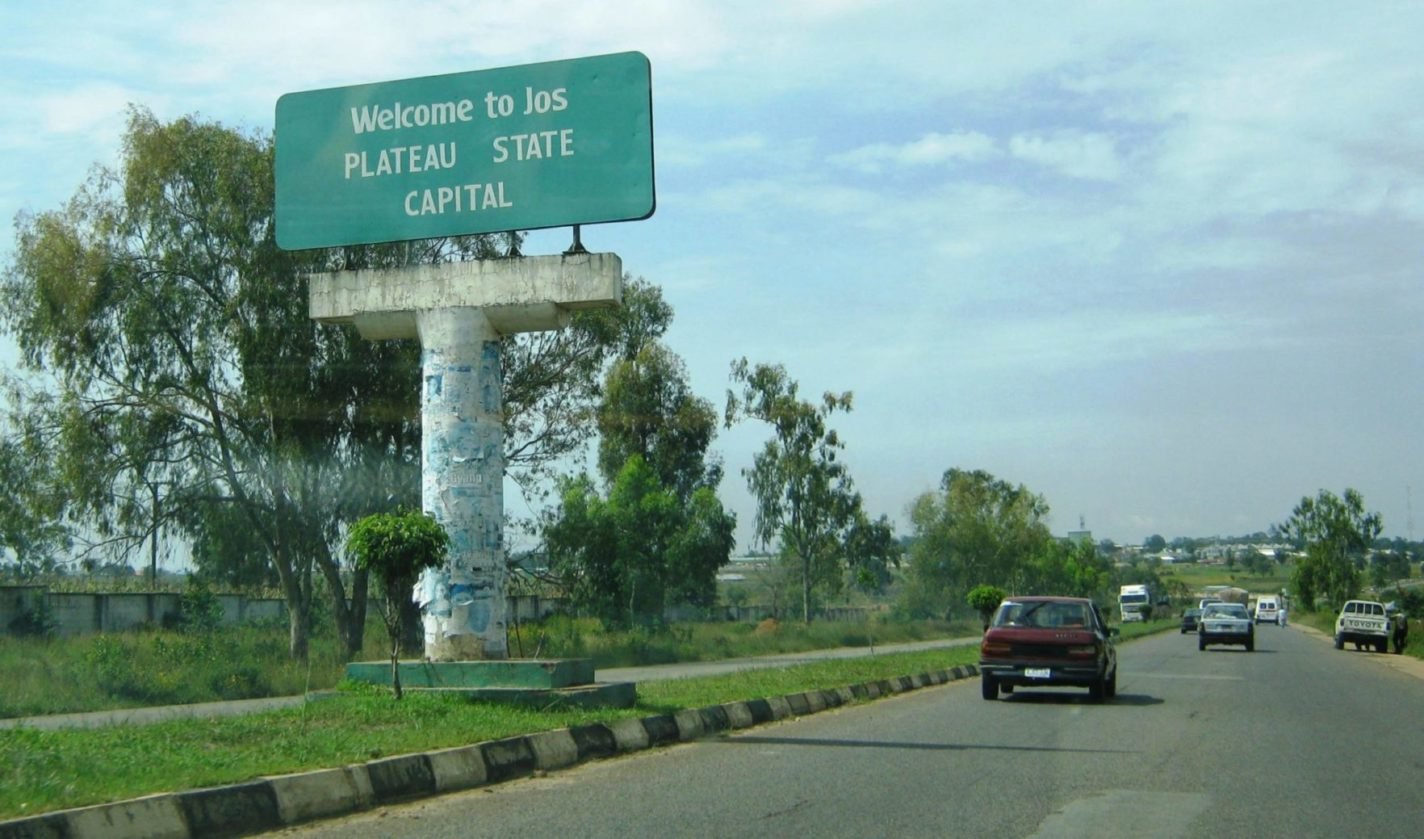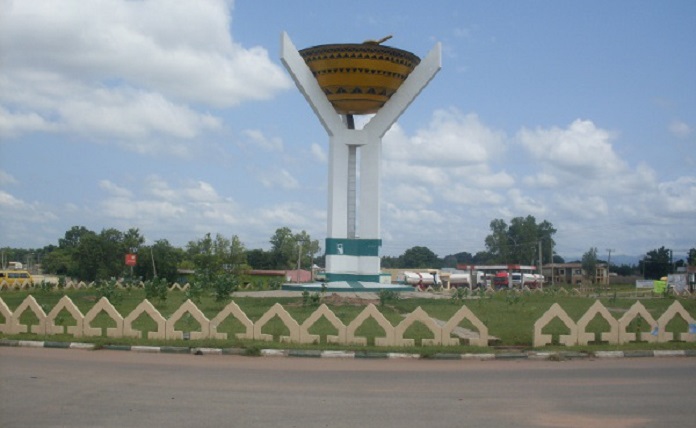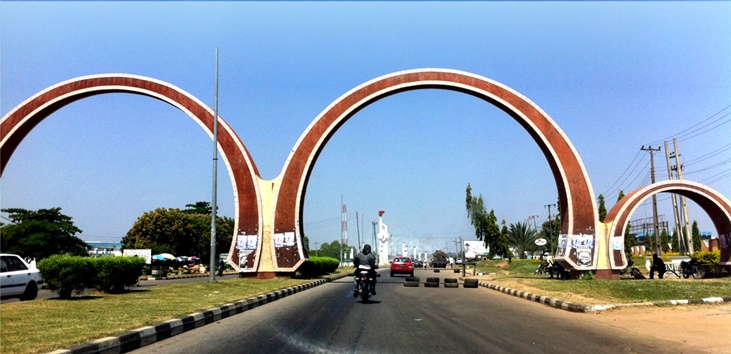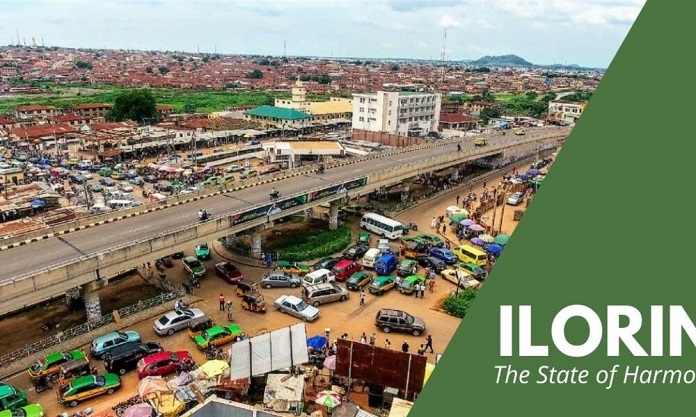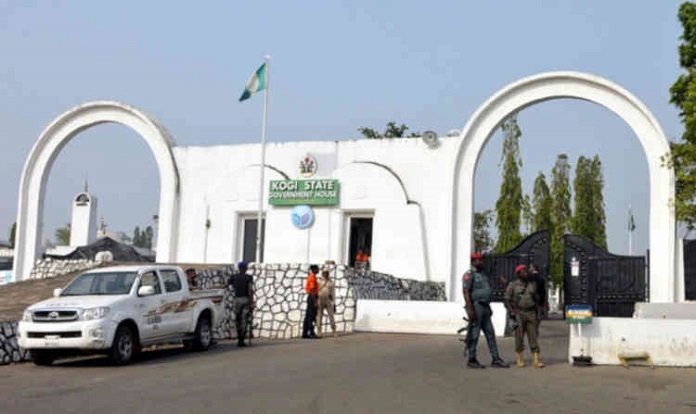The middle belt states in Nigeria are Plateau, Adamawa, Taraba, Niger, Kwara, Kogi, Benue, and the Federal Capital Territory, Abuja. Other areas considered part of the Middle Belt are Southern Kaduna, Southern Bauchi, Southern Kebbi, Southern Gombe, Southern Yobe State, and Southern Borno.
Nigeria is divided into six geopolitical zones, one of which is the North-central region representing the majority of the country’s Middle Belt. The Middle Belt is a human geographical term used to designate a belt region stretching longitudinally across the centre of Nigeria and thereby forming a transition zone between Southern and Northern Nigeria. This geographical region comprises several regions and is home to many ethnic groups speaking hundreds of languages.
Population of Middle Belt States in Nigeria
Middle Belt States in Nigeria has a population of over 45 million people, and the areas considered under the middle belt included the old Plateau, old Gongola, Niger, Kwara, Kogi, Benue, and the Federal Capital Territory. But how many states make up the present-day middle belt states? Find out as you read further.
Plateau State
- Capital: Jos
- Tribes: Berom, Jukun, Mango, Fulani, Hausa, Tarok, Ankwei, Ngas, Jawara and Eggen
- Languages: Berom, Ngas, Tarok, Boghom, Hausa/Fulani
- Economic Activities: Farming, Mining, Tourism
Described as “The Home of Peace and Tourism”, Plateau state is one of the major middle belt states and its capital is Jos. The state was created in 1976 during General Yakubu Gowon’s administration when the then twelve states were further divided into nineteen states. The state is the twelfth-largest Nigerian state. It’s located near the centre of Nigeria and got its name from the Jos Plateau, a mountainous area in the north of the state with rock formations.
Known for its heterogeneity, Plateau state has about 40 ethnic groups spread across its 17 local governments, These ethnic groups include Tarok, Ankwei, Angas, Jawara (Jarauci), Birom, Mango, Fulani, Hausa, and Eggen. Moreover, amid their ethnic diversities, the people of Plateau State are predominantly farmers and have similar cultural and traditional ways of life. They are also bound by their strong economic spirit with agriculture being their primary economic activity, although tin mining and processing are very common in the state.
Jos, Plateau state, produces large large quantity of vegetables – cabbage, carrot, lactose, cucumber, tomato and Irish potato, among others. Tomatoes produced in Jos, popularly known as “Tomato Jos,” are adjudged to be the best in the country. However, the state’s chief cash crops include Acha (a grain known as “hungry rice”) and millet; while yams, sorghum, corn (maize), potatoes, cowpeas, rice and fruits are among its staple crops.
Adamawa State
- Capital: Lafia
- Tribes: Fulani, Mumuye, Higi, Kapsiki, Chamba, Margi, Hausa, Gude, Wurkum
- Languages: Fulfulde, Hausa or English
- Economic Activities: Farming
Adamawa was founded on 27 August 1991, when the former Gongola state was divided into Adamawa and Taraba states. The state is the eighth largest in area, but the thirteenth least populous with an estimated population of about 4.25 million as of 2016. It is one of the most heterogeneous in Nigeria, with over 100 indigenous ethnic groups. Besides the dominant Fulani, Adamawa is also inhabited by the Mumuye, Higi, Kapsiki, Chamba, Margi (Marghi), Hausa, Kilba, Gude, Wurkum, Jukun, and Bata peoples.
Adamawa State is also known for its cultural heritage which is reflected in its craftsmanship, music and dances, dress patterns, the people’s hospitality and cordial inter-relationship. Christianity, Islam and Traditional Religion are majorly practiced in the state. Moreover, it is home to many languages due to the state’s ethnic diversity. Inter-ethnic communication across the 21 local governments of the state is mostly done using Fulfulde, Hausa or English.
Adamawa has vast arable land for agriculture with essential picturesque mountains and land traversed by big River valleys of Benue, Gongola and Yedsarem. The people of the state are farmers. They are known for producing crops like groundnut, cotton, maize, yam, cassava, guinea corn, millet, beans, sweet potato and rice. Cattle rearing is also a major occupation, while village communities living on the banks of River Gongola and Benue in the State engage in fishing and dry season production of vegetable crops like tomato, onion, pepper, amaranthus, okra, garden egg and melon using wash bore and tube well irrigation with water pumps.
Taraba State
- Capital: Jalingo
- Tribes: Fulani, Mumuye, Tiv, Wurkum,
- Languages: Fulfulde, Mumuye, Tiv, Jibu (Jukun Kona)
- Economic Activities: Agriculture
Taraba state is amongst the states also referred to as the middle belt states in Nigeria. It is located in the northern region of Nigeria. It was created in 1991 and it borders Plateau, Nassarawa and Benue states in the west, while Adamawa State and the Republic of Cameroon are on its eastern border and Gombe State is on its northern border.
Also a very religious state, this middle-belt state is largely populated by the Mumuye who speak the Mumuye language. They constitute the largest tribal group in Taraba State and form the predominant tribes found in Zing, Yorro, Jalingo, Ardo-Kola, Lau, Gassol, Bali and Gashaka, all of which are among the 16 local government areas of the state. We also have the Fulanis, Tiv, Kuteb, Chamba, Yandang, Mambila, Karimjo, Wurkums, Jenjo and Jibu (Jukun Kona) as among the major tribes in the state
Taraba is called “Nature’s gift to the nation” as the major occupations of the people of Taraba State are farming, fishing, and hunting. Cash crops produced in the state include coffee, tea, groundnuts and cotton. Crops such as maize, rice, sorghum, millet, cassava, and yam are also produced in commercial quantities. The Mambilla Plateau people are, however, known to be cattle rearers.
Niger State
- Capital: Minna
- Tribes: Nupe, Gbagyi, Kamuku, Kambari, Gungawa, Hun-Saare, Hausa and Koro
- Languages: Nupe Hausa, Dibo, Kakanda
- Economic Activities: Farming
Also among the middle belt states in Nigeria is Niger State which was founded on 3 February 1976, with its capital being Minna. Niger state is the home of the great River Niger which is termed one of the biggest or largest rivers in Africa.
Also a Northcentral state, Niger State is the largest state in the country by area. It is bounded by the River Niger in the south; Kebbi and Zamfara state to the north, Kaduna to the north and northeast, Kogi to the southeast, and Kwara to the south. The FCT, Abuja, is on Niger state’s eastern border, and the Republic of Benin is its western border.
Niger state is populated mainly by the Nupe people in the south, the Gwari in the east, the Busa in the west, and Kamberi (Kambari), Hausa, Fulani, Kamuku, and Dakarki (Dakarawa) in the north. Other tribes like the Gungawa, Hun-Saare, and Koro form the majority of numerous indigenous tribes of Niger State. The major languages spoken across the state’s 25 local government areas are Nupe Hausa, Dibo, and Kakanda.
Economic-wise, the people of Niger State are predominantly farmers. Sorghum, millet, cowpeas, corn (maize), tobacco, palm oil and kernels, kola nuts, sugarcane, and fish are also important in local trade. Paddy rice is widely grown as a cash crop in the area while pottery, brass work, glass manufacturing, raffia articles, and locally dyed cloth are the state’s significant exports.
Kwara State
- Capital: Ilorin
- Tribes: Nupe, Fulani, Yoruba,
- Languages: Yoruba, Nupe, Fulfulde
- Economic Activities: Agriculture, Mining
Also a Northcentral state, this middle-belt state, Kwara, derived its name from the Nupe word for the “River Niger” perhaps because the River Niger flows through Kwara state passing Jebba, Edu, Patigi Local Government Area to Kogi state. Kwara state was created on 27 May 1967, when the federal military government of General Yakubu Gowon broke the federation of Nigeria into 12 states.
This very old state has four major ethnic groups namely the Yorubas who mostly occupy Kwara South region, the Fulanis occupy the state’s capital, Illorin and Kwara Central, the Nupe people are found mostly in Kwara North with settlements in towns like the Tsaragi, Lafiaji and Patigi. There is also the Bariba tribe who are in minority and located in Kwara North, and occupying areas like Baruten and Kaiama LGAs. They are also mainly Muslims and can easily be mistaken for Hausa/Fulani or Nupes.
Agriculture remains the main source of the Kwara state economy with principal cash crops like cotton, cocoa, coffee, kola nut, tobacco, sesame and palm produce. Kwara state is also home to Shonga Farms, a product of the Back-to-Farm project of one of the past governors of the state, Dr. Abubakar Bukola Saraki.
Some of the popular industrial minerals you will find across the 25 local government areas of the state are Marble/dolomite, kaolin, silica sand, quartz, granites, talc and feldspar. Metallic ores: Gold, cassiterite, columbite, tantalite and rare-earth metals. Gemstones: Tourmaline, aquamarine, sapphire, emerald, amethyst and beryl.
Kogi
- Capital: Lokoja
- Tribes: Ebira, Igala, Yoruba
- Languages: Ebira, Igala, Yoruba, Nupe, Kupa, Bassa Nge, Basa Komu, Kupa, Hausa.
- Economic Activities: Agriculture
Kogi state is in central Nigeria and one of the middle belt states in Nigeria. It was created on August 27 1991, from portions of Kwara and Benue states and it is bordered by ten states – Nassawara state to the northeast; Benue to the east; Enugu, Anambra, and Delta to the south; Ondo, Ekiti, and Kwara to the west; and Niger to the north. Abuja Federal Capital Territory also borders Kogi to the north
With an estimated 4.5 million residents as of 2016, Kogi is the 20th most populated and thirteenth largest in terms of area out of Nigeria’s 36 states. The state is occupied by three major ethnic groups and languages: Igala, Ebira, and Okun (similar to Yoruba). The minority tribes are like Bassa, a small fraction of Nupe mainly in Lokoja, Gwari, Kakanda, Oworo people (similar to Yoruba), ogori magongo and the Eggan community under Lokoja Local Government.
Economically, the people of Kogi State are largely farmers, with its major cash crops including coffee, cashew, groundnut, cocoa, oil palm, and yam crops. Other key economic activities going on in the state are crude oil extraction and the livestock herding of cattle, goats, and sheep.
Benue State
- Capital: Markurdi
- Tribes: Tiv, Idoma and Igede
- Languages: Tiv, Idoma and Igede
- Economic Activities: Agriculture, mining
Benue State is a northern state and is also referred to as one of the Middle Belt states in Nigeria. The state was among the seven states created in 1976, and it derives its name from the Benue River which is the second largest river in Nigeria after the River Niger. To the north border of the state lies Nassarawa state, while Taraba, Kogi, and Enugu share borders with the state in its east, west, and southwest, respectively.
Benue state is largely inhabited by the Tiv, Idoma, and Igede people. Minority ethnic groups in Benue are Etulo, Igbo, Jukun people etc. The Tivs occupy 14 local government areas in the state. In Benue, their rich cultural heritage is expressed through their colourful attire, their unique music and style of dance as well as their exotic masquerades.
Benue is the food basket of the nation in every sense of the word. It is a rich agricultural region, known for growing crops like soybeans, shea nuts, oranges, mangoes, sweet potatoes, cassava, soya bean, guinea corn, flax, yams, sesame, rice, and groundnuts. There are mineral resources scattered across the 23 local governments of Benue state. These minerals include Limestone, Kaolinite, Baryte, Gypsum, Feldspar, mineral salts and Gemstone etc.
Federal Capital Territory, Abuja
- Capital: Abuja
- Tribes: Gwari, Hausa, Fulani
- Languages: Gwari, Hausa, Fulfulde
- Economic Activities: Real Estate, Agriculture
The Federal Capital Territory, Abuja, is the administrative and political capital of Nigeria. It was named so in 1976 because it is situated at the centre of the nation. The land is mainly occupied by the Gbagyi (Gwari), Hausa, Koro, Fulani, Ganagana, Afo, Gwandara, and Bassa. The Gwarri people are believed to be the true owners of Abuja because the Gbagyi language formerly was the major language of the region. Other groups in the area include the Bassa, Gwandara, Gade, Dibo, Egburra, and Nupe.
Economic activities in the Federal Capital Territory mainly include real estate, transportation and trade fairs. However, the Gwari people occupying the land are farmers although they are also good at wood fetching, pottery, and blacksmithing. The Gbagyi people are also famous for their visual art, especially pottery. Other arts practised by the people are sculpture, iron smelting, and domestic craft.
Other areas that make up the Middle Belt Region
Aside from the above-listed states that are majorly called the middle belt states of Nigeria, other states could be said to partly belong to the middle belt. This is because the region is composed of the southern half of the defunct Northern Region of Nigeria. The following areas are, therefore, culturally considered part of the Middle Belt:
- Southern Kaduna
- Soutern Bauchi
- Southern Kebbi
- Southern Gombe
- Southern Yobe
- Southern Borno

